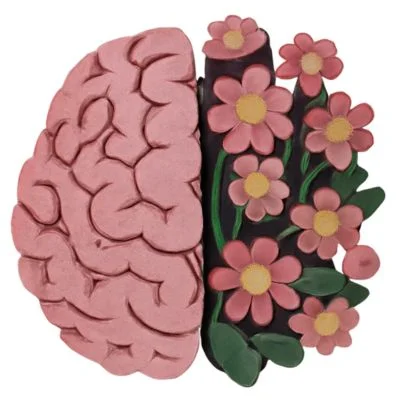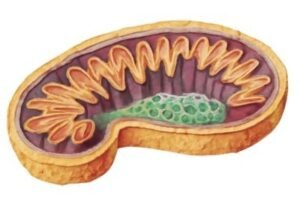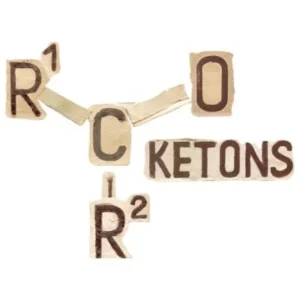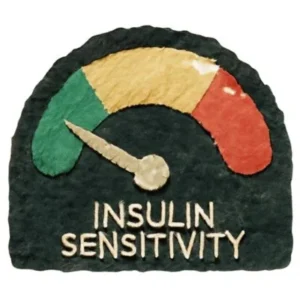Let me ask you: Have you ever walked into a room and forgotten why you were there? Or felt your mind foggy after a heavy meal, unable to focus?
Now imagine those little glitches magnified — not just occasionally, but daily.
Table of Contents
ToggleThat’s what brain aging and neurodegenerative diseases like Alzheimer’s or Parkinson’s feel like.
But here’s what science has uncovered: your brain has a self-cleaning switch.
When turned on, it clears toxic waste, repairs itself, and protects neurons from damage.
That switch is called autophagy.
And fasting — done right — is one of the most powerful ways to flip it.

What Is Autophagy? A Quick Refresher
Autophagy literally means “self-eating” (auto = self, phagy = eating). But don’t imagine destruction — think of recycling.
- What it does: Cells identify broken proteins, damaged mitochondria (energy factories), or toxic clumps, package them, and send them to the “cellular stomach” (lysosome) for breakdown.
- Why it matters: Without autophagy, cellular junk accumulates, leading to inflammation, dysfunction, and disease.
- In the brain: Autophagy clears misfolded proteins like amyloid-beta and alpha-synuclein — the same ones linked to Alzheimer’s and Parkinson’s.
So, autophagy is not just about anti-aging in skin or muscles. It’s deeply connected to brain protection.
The Brain’s Special Need for Autophagy
Your brain makes up only ~2% of your body weight, but it uses 20% of your energy. That means neurons generate more waste, more oxidative stress, and more damaged proteins.
Unlike muscles, brain cells don’t regenerate easily. Neurons you damage today may be gone for good.
👉 This is why autophagy in the brain is so crucial. It’s the only way to keep neurons “young” by cleaning up internal waste.
What Studies Show About Autophagy and Neuroprotection
Let’s go step by step through the research.
Alzheimer’s Disease (AD)
- Problem: Accumulation of amyloid-beta plaques and tau tangles that disrupt neuron communication.
- Evidence:
- Animal studies show impaired autophagy accelerates amyloid-beta buildup.
- Enhancing autophagy in models reduces plaques and preserves memory.
- Fasting-mimicking diets improved cognition in early Alzheimer’s patients (pilot studies).
- Takeaway: Autophagy may slow or even partially reverse toxic protein accumulation.
Parkinson’s Disease (PD)
- Problem: Build-up of alpha-synuclein in dopamine-producing neurons.
- Evidence:
- Defective autophagy found in Parkinson’s brains.
- Drugs and dietary interventions that stimulate autophagy reduce alpha-synuclein toxicity in models.
- Ketones (produced during fasting) protect dopaminergic neurons.
- Takeaway: Autophagy is a key protective mechanism in Parkinson’s.
Brain Aging
- Problem: With age, autophagy declines → protein clumps accumulate, mitochondria falter, cognitive decline sets in.
- Evidence:
- Caloric restriction and intermittent fasting increase markers of autophagy in the brain.
- Enhanced autophagy is linked to better memory, slower cognitive decline in aging animals.
- Takeaway: Supporting autophagy may extend healthspan of the brain, not just lifespan of the body.
Brain Fog & Everyday Clarity
- Problem: Post-meal sluggishness, inability to focus, mood swings.
- Evidence:
- Fasting reduces inflammatory cytokines that impair cognitive performance.
- Ketones fuel the brain more efficiently than glucose, leading to reported clarity.
- Takeaway: You don’t need dementia to feel the benefit — autophagy supports sharper thinking even in daily life.
How Fasting Triggers Autophagy in the Brain
So, how exactly does skipping meals clean neurons?
- Insulin Drops → Low insulin turns on AMPK (an energy sensor), which signals autophagy.
- mTOR Inhibited → mTOR, the “growth” switch, quiets down, allowing repair.
- Ketones Rise → Ketones not only fuel the brain but also act as signals that enhance resilience and BDNF (brain-derived neurotrophic factor).
- Oxidative Stress Reduced → Autophagy clears damaged mitochondria (mitophagy), lowering oxidative damage.
👉 Translation: fasting shifts your brain from “processing mode” into “repair mode.”
Common Myths vs. Evidence
- Myth 1: “Autophagy will cure Alzheimer’s overnight.”
- Reality: It’s promising, but human trials are early. It’s supportive, not a magic bullet.
- Myth 2: “You need to fast for 7 days to benefit.”
- Reality: Even 16–24 hrs of fasting may enhance autophagy-related markers.
- Myth 3: “Supplements can replace fasting.”
- Reality: Some compounds mimic aspects, but fasting remains the most natural, holistic trigger.
How Much Fasting Do You Need for Brain Benefits?
- 12–16 hrs: Mild autophagy, improved insulin sensitivity, some cognitive clarity.
- 24 hrs: Deeper autophagy, ketone levels rise, brain begins tapping ketones.
- 48–72 hrs: Strong autophagy, significant cleanup of damaged proteins, immune reset.
👉 Daily intermittent fasting + occasional extended fasts = the most sustainable brain-protection approach.
Practical Tips to Harness Autophagy for Brain Health
- Start Small
- Try 14–16 hr fasting windows before jumping into multi-day fasts.
- Eat Brain-Friendly Foods When Feeding
- Omega-3s (fish, walnuts), polyphenols (berries, green tea), antioxidants.
- These complement autophagy’s cleanup by reducing inflammation.
- Prioritize Sleep
- Sleep + fasting = brain’s glymphatic system (nighttime detox) + autophagy = double cleaning power.
- Exercise for Extra Autophagy
- Aerobic + resistance training stimulates autophagy in muscle and brain.
- Stay Hydrated + Manage Stress
- Cortisol balance is crucial; excessive stress can block benefits.
This Is About You
Let me ask you something gently but honestly.
👉 Do you worry about memory slipping as you age?
👉 Do you have a parent or relative who suffered from Alzheimer’s or Parkinson’s, and you wonder if the same fate awaits you?
👉 Do you struggle with brain fog, concentration lapses, or emotional imbalance right now?
If you answered yes to any of these — you are not alone. And it’s not your fault.
Our modern lifestyle — constant eating, sugar, processed foods, poor sleep — suppresses autophagy. The brain’s cleaning crew is locked out, while waste piles up.
Fasting is one way to invite that crew back in. But not all fasting is equal. Too little, and you don’t get the repair.
Too much, and you stress the body. And everyone’s brain and body are unique — women, men, young, old, diabetic, or healthy.
That’s why guidance matters. When I work with patients, it’s not about “skipping meals.”
It’s about designing a rhythm of fasting, eating, sleeping, and nourishing that fits your brain’s needs.
Imagine waking up clear-headed. Imagine protecting your memory decades into the future.
Imagine feeling sharp without caffeine dependence. That’s what aligned autophagy can offer.
FAQs
Q: How soon does fasting affect brain autophagy?
👉 Autophagy markers increase after ~16–24 hrs, but clarity can improve earlier due to ketones.
Q: Can autophagy reverse Alzheimer’s?
👉 Current evidence shows slowing and prevention potential; reversal is not proven.
Q: Do ketones alone cause autophagy?
👉 They support it, but autophagy requires energy scarcity signals like fasting.
Q: Can I fast if I’m worried about brain health but also underweight?
👉 Not without supervision. Modified fasting or fasting-mimicking diets may be safer.
Q: Is exercise better than fasting for brain autophagy?
👉 They’re synergistic. Exercise + fasting is more powerful than either alone.
Protecting the Brain That Defines You
At the end of the day, your brain is you. Your memories, your focus, your creativity, your relationships — all flow from this organ.
Autophagy is not a miracle cure, but it is your brain’s built-in shield. It’s how your neurons defend themselves against clutter, toxins, and time.
👉 If you start fasting wisely, you may notice sharper mornings, fewer cravings, clearer focus.
👉 If you stay consistent, you may protect your brain from the decline that steals independence in later years.
But please — don’t do it blindly. Your brain is too important. The right rhythm of fasting, food, and lifestyle, tailored to your health, can make all the difference.
Because this isn’t just about preventing disease. It’s about preserving the best version of you — today, tomorrow, and decades from now.
And if you’d like support designing a plan that nourishes your brain and protects your future, that’s exactly what we do. You don’t have to figure it all out alone.






